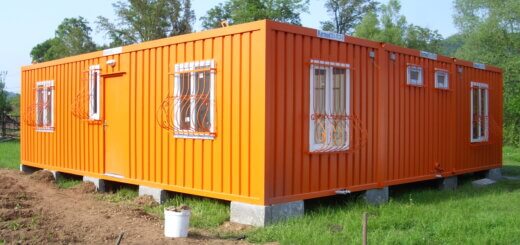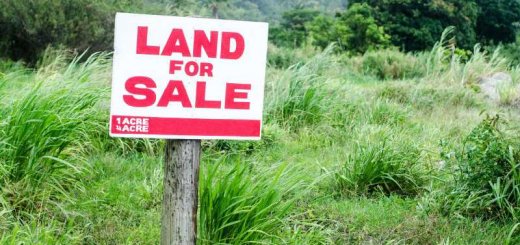Land for Lease in Nairobi: A Comprehensive Guide to Land Leasing
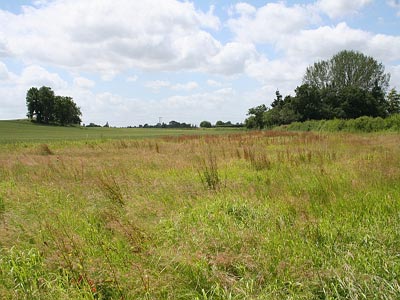
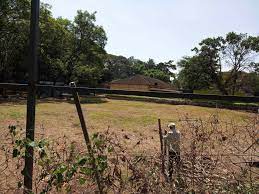
land for lease in Nairobi
Introduction
The concept of land leasing has gained traction within Nairobi’s bustling real estate sector. Land for lease in Nairobi provides exciting opportunities for businesses, developers, and individuals alike. This article aims to equip potential leaseholders with valuable insights into the process, key considerations, and the broader implications of leasing land in Nairobi.
Understanding Land Leasing
Land leasing is essentially a rental agreement where a lessee pays the landowner for the exclusive right to use the land. In Nairobi, there are various types of land leases, such as ground leases, commercial leases, and agricultural leases. These leases differ based on their intended use and contract terms. While land leasing provides increased accessibility to prime land, it’s important to note that it comes with its unique set of pros and cons.
Role of Land Leases in Nairobi’s Real Estate Landscape
Land leasing has significantly influenced Nairobi’s real estate landscape, leading to noticeable transformation and growth. A considerable portion of the city’s development hinges on the availability and accessibility of land for lease in Nairobi. Let’s delve deeper into how leasing impacts Nairobi’s real estate sector.
One of the main drivers of Nairobi’s urban development is the rise in commercial projects, most of which hinge on leasing agreements. Entrepreneurs and businesses seeking to establish or expand their presence in Nairobi often turn to land leases due to their cost-effectiveness and flexibility. This increase in commercial activity, spurred by land for lease in Nairobi, has contributed to job creation, bolstered the city’s economy, and strengthened Nairobi’s position as a regional business hub.
Residential projects also significantly benefit from leasing land. With the city’s growing population and the increasing demand for housing, developers often opt for leasing land to construct residential buildings. This allows for the accommodation of Nairobi’s expanding populace without the hefty upfront costs of land purchase. The land for lease in Nairobi serves as the cornerstone for numerous housing projects that span from affordable housing to high-end luxury apartments.
Moreover, land leases play a significant role in urban planning and sustainable development in Nairobi. Government and municipal authorities often use land leasing as a strategy to control and guide the city’s growth. They designate specific parcels of land for lease in Nairobi for various purposes, be it commercial, residential, or public utilities. This planned allocation and usage of land help to prevent haphazard development and maintain an organized city structure.
Agricultural land leases also contribute to Nairobi’s real estate landscape, albeit on the city’s outskirts. These leases offer opportunities for agricultural development, providing the city with local sources of food and creating employment opportunities in farming industries.
The role of land for lease in Nairobi in shaping the city’s real estate landscape is thus multifaceted. It facilitates commercial and residential development, aids in effective urban planning, and even supports agricultural initiatives. Through land leasing, Nairobi continues to grow and evolve, further cementing its status as one of Africa’s leading cities.
Steps to Lease Land in Nairobi
Embarking on a journey to lease land in Nairobi can be both exciting and challenging. Understanding the process can help streamline your steps towards securing the right land lease. Here, we break down the essential steps involved when looking at land for lease in Nairobi.
Define Your Land Needs and Budget
The first step to leasing land in Nairobi is identifying your specific land needs. These needs could be driven by various factors such as the intended use of the land, the desired location, size, and accessible amenities. For instance, a person looking to start a retail business would look at commercial land for lease in Nairobi in high foot-traffic areas. On the other hand, a developer looking to build apartments would look for residential land for lease in a serene, accessible area.
Simultaneously, it’s important to establish a budget. Leasing land involves several costs apart from the lease amount itself, such as legal fees, broker fees, and any potential development costs. Having a clearly defined budget can streamline your search for the ideal land for lease in Nairobi.
Search for Suitable Land
Once you have a clear understanding of your needs and budget, the next step is searching for suitable land for lease in Nairobi. There are numerous resources available to aid your search. These include online real estate platforms, newspapers, real estate agencies, and sometimes, word-of-mouth referrals.
As you evaluate various options, consider factors like the proximity to essential amenities, connectivity, neighborhood demographics, and any potential future developments in the area.
Understanding the Lease Agreement
After identifying potential land for lease in Nairobi, it’s time to dive into the details of the lease agreement. Lease agreements can be complex and involve various aspects that you must understand thoroughly.
The agreement should clearly state the lease term, rent amount, rent review mechanism, responsibilities of both parties, and clauses for termination or extension of the lease. In Nairobi, most land leases can vary widely, ranging from a few years to even 99 years.
Also, pay attention to any restrictions on land use or development outlined in the lease. If you plan to construct any structures on the land, it’s important to ensure that your intended use aligns with these restrictions.
Legal Compliance and Documentation
When dealing with land for lease in Nairobi, legal compliance is crucial. Ensure that the lease agreement adheres to the land leasing laws of Nairobi and Kenya at large. It’s advisable to engage a lawyer to help you understand the legal intricacies of the lease agreement.
The lessor should provide all necessary documents related to the land. These may include the original title deed, land rates clearance certificates, and a copy of the National Identification Card and Personal Identification Number. Always ensure these documents are verified to confirm the authenticity of the lessor’s ownership and the validity of the land for lease in Nairobi.
Engaging professionals, conducting thorough due diligence, and being clear about your needs can make your journey to leasing land in Nairobi a lot smoother. It’s always important to remember that leasing land is a long-term commitment, and hence, every step towards it needs to be well thought out.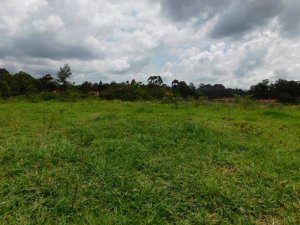
Key Considerations in Land Lease Agreements
When negotiating a land lease agreement in Nairobi, understanding the nuances of the contract is crucial for a beneficial deal. These documents contain vital information about your rights and responsibilities concerning the land for lease in Nairobi. Below, we explore several key aspects to consider.
- Lease Duration and Renewal Terms: The lease duration, often referred to as the lease term, indicates how long the lessee is entitled to use the land. It could range from a few years to several decades. Alongside the duration, lease agreements also contain renewal terms. This clarifies whether the lease can be renewed once the initial term ends, and under what conditions. Understanding these aspects ensures you have access to the land for lease in Nairobi for an adequate period to meet your goals.
- Rent and Rent Review Clauses: Naturally, the lease agreement will stipulate the rent payable for the land. But beyond the amount, it’s important to consider how often the rent will be reviewed and adjusted. Inflation and changes in the real estate market could lead to significant shifts in land value. Therefore, make sure the lease agreement for the land for lease in Nairobi clearly outlines the rent review process, intervals, and the calculation methods to be used.
- Use and Development Restrictions: Lease agreements often specify how the land can be used. For instance, a lease might limit the use to residential, commercial, or agricultural purposes. Some agreements might have more specific restrictions, such as not allowing certain types of businesses. As a potential lessee, you must ensure that the permitted land use aligns with your intentions for the land for lease in Nairobi.In addition, the lease might stipulate conditions for developing the land. Some leases might not permit any constructions, while others might require you to get approval from the landlord before making significant changes. These restrictions could considerably impact your plans, so it’s crucial to understand them before entering into the lease.
- Rights and Responsibilities of Each Party: The lease agreement should clearly outline the rights and responsibilities of both the lessor and lessee. As a lessee, you need to understand your obligations regarding the maintenance of the land for lease in Nairobi, payment terms, and what actions could lead to the termination of the lease. Also, knowing your rights, such as the right to quiet enjoyment of the leased land, is crucial for a beneficial leasing relationship.
Land Leasing Opportunities in Nairobi
Nairobi, Kenya’s vibrant capital city, presents a broad spectrum of opportunities for land leasing. As a thriving metropolis, Nairobi is continuously growing and developing, leading to an increased demand for land for lease in Nairobi. These opportunities span across different sectors, including residential, commercial, and industrial.
In the residential sector, there is a rising demand for land for lease in Nairobi. This is attributed to Nairobi’s growing population and the subsequent need for housing. This provides a viable opportunity for real estate developers looking to construct apartment buildings or gated communities. Residential areas like Karen, Westlands, and Kileleshwa are becoming increasingly popular for such ventures.
Commercial land for lease in Nairobi offers another thriving opportunity, particularly for businesses and commercial developers. The city’s central business district, along with areas like Westlands and Upper Hill, house numerous local and international businesses. Land in these areas is highly sought after for the construction of office buildings, retail spaces, and other commercial enterprises.
In the industrial sector, there is a surge in demand for land for lease in Nairobi in areas like Industrial Area, Embakasi, and Mlolongo. These zones are ideal for businesses seeking to establish factories, warehouses, or other industrial facilities due to their proximity to transport infrastructure and other essential services.
Additionally, land for lease in Nairobi also presents opportunities for agricultural use. Despite being a bustling city, areas on the outskirts of Nairobi like Limuru and Thika provide excellent land for agricultural activities. This is perfect for investors looking to venture into agribusiness.
Furthermore, the market for land for lease in Nairobi is continually shaped by emerging trends. The current shift towards sustainable living, for instance, is driving demand for land in green spaces for the construction of eco-friendly buildings. This is evident in areas like Gigiri, which houses the United Nations Environmental Programme headquarters.
How to Secure a Good Land Lease Deal
Securing a favorable land lease deal, especially in a market as dynamic as Nairobi, can be a challenging yet rewarding process. Here, we delve into several strategies that can enhance your ability to secure a good deal on land for lease in Nairobi.
Understand the Market
First and foremost, understanding the market is crucial. Familiarize yourself with current leasing rates for similar properties within your target location. Researching recent deals on land for lease in Nairobi can provide a baseline for your negotiations. Additionally, stay updated on market trends and future predictions that could impact lease terms and rates.
Clear Definition of Requirements
Define your requirements clearly before starting your search for land for lease in Nairobi. This includes determining the location, size, and type of land that best suits your needs. Clear requirements will guide your search and negotiations, preventing you from settling for less than optimal deals.
Engage Professionals
Engaging professionals can give you a significant advantage. A local real estate agent, for example, will have extensive knowledge of land for lease in Nairobi, including available properties, going rates, and valuable connections. Similarly, a legal professional can help navigate the intricacies of lease agreements, ensuring that you understand all the terms and conditions before signing.
Negotiate Effectively
Negotiation is a crucial aspect of securing a good land lease deal. Don’t be afraid to negotiate the asking price and lease terms based on your research. Remember, every aspect of the lease agreement, including the duration, payment terms, and obligations, is negotiable. It’s vital to present your case effectively while respecting the landlord’s perspective when discussing land for lease in Nairobi.
Perform Due Diligence
Before finalizing any lease agreement, it’s essential to perform due diligence. This involves verifying the landowner’s credentials, ensuring there are no disputes or legal issues with the property, and confirming that the land can be used for your intended purpose. Skipping this step when considering land for lease in Nairobi could lead to serious issues later on.
Consider Future Implications
Finally, consider the long-term implications of the lease agreement. Will the lease terms suit your needs a few years down the line? Is there a provision for rent review, and is it fair? Considering the future can prevent you from entering into an agreement that becomes unfavorable over time.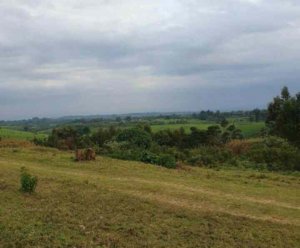
Impacts of Government Policies on Land Leasing
Government policies play a significant role in shaping the land leasing market in Nairobi. These policies, regulations, and laws have direct and indirect impacts on land for lease in Nairobi, influencing various aspects of the leasing process. Understanding the influence of government policies is crucial for potential leaseholders to make informed decisions and navigate the leasing landscape effectively.
Zoning Regulations and Land Use
Government policies, such as zoning regulations, have a direct impact on land leasing in Nairobi. Zoning regulations determine how land can be used within specific areas. Land in Nairobi is categorized into different zones, including residential, commercial, industrial, and agricultural zones. These designations influence the types of leases available in different areas. For example, commercial leases may be more prevalent in designated commercial zones, while agricultural leases may be more common in rural or agricultural zones. Understanding the zoning regulations in a specific area is important for potential leaseholders to identify suitable land for their intended use.
Lease Duration and Renewal Terms
Government policies also influence the duration of land leases and the terms of lease renewal in Nairobi. Some areas may have specific regulations that set limits on the maximum duration of land leases. These policies impact the stability and longevity of lease agreements, particularly in the context of land for lease in Nairobi. By understanding the government’s stance on lease duration and renewal terms, potential leaseholders can plan for the future and make informed decisions regarding their leasing options.
Rent Determination and Review Mechanisms
Government policies play a role in determining lease rent and establishing rent review mechanisms for land for lease in Nairobi. Rent calculation guidelines or frameworks set by the government ensure fairness and transparency in lease transactions. These policies aim to balance the interests of both landowners and lessees, promoting stability and sustainable leasing practices. By considering the government’s guidelines for rent determination and review, potential leaseholders can negotiate fair lease agreements and manage their leasing costs effectively.
Land Ownership and Tenure Policies
Government policies related to land ownership and tenure also impact land leasing in Nairobi. Land tenure systems, defined by government policies, outline the rights and responsibilities of landowners and tenants. Policies regarding land titling, land registration, and land rights influence the security of tenure for leaseholders. Clarity and transparency in land ownership are crucial for leaseholders to have confidence in their lease agreements and ensure long-term stability. When exploring land for lease in Nairobi, potential leaseholders should be aware of the government’s policies on land ownership and tenure to make informed decisions.
Policy Incentives and Initiatives
Government policies may introduce incentives and initiatives that influence land leasing in Nairobi. These policies aim to encourage specific types of leasing or promote certain industries. For example, agricultural leasing may be incentivized through agricultural subsidies or tax benefits for agribusinesses. Similarly, the government may introduce initiatives to encourage commercial leasing in specific areas to promote economic development and job creation. By understanding these policy incentives and initiatives, potential leaseholders can identify opportunities aligned with their leasing goals and make informed decisions regarding land for lease in Nairobi.
Impact of Policy Changes
Changes in government policies can have significant impacts on the land leasing market in Nairobi. Policy shifts related to land use, infrastructure development, taxation, or urban planning can influence market dynamics and lease prices. Potential leaseholders should stay updated on policy changes and anticipate their potential effects on the leasing landscape. Being aware of policy changes allows leaseholders to adapt their strategies, evaluate potential risks, and capitalize on new opportunities presented by the evolving government policies affecting land for lease in Nairobi.
Overcoming Challenges in Land Leasing
Leasing land in Nairobi presents its fair share of challenges. However, with careful planning, diligent research, and professional guidance, these obstacles can be effectively overcome. In this section, we will explore some of the common challenges faced by individuals seeking land for lease in Nairobi and discuss strategies to navigate them successfully.
- Complex Lease Terms and Conditions: Lease agreements for land for lease in Nairobi can be intricate, containing legal jargon and complex clauses. Understanding the terms and conditions is crucial to avoid any misunderstandings or disputes in the future. Consider engaging the services of a legal professional who specializes in real estate to review and explain the lease agreement thoroughly. They can help ensure that the terms align with your interests and negotiate any unfavorable clauses.
- Land Use and Zoning Restrictions: Land use regulations and zoning restrictions can significantly impact the development potential of leased land in Nairobi. Before entering into a lease agreement, carefully review the zoning regulations to ensure that the land is suitable for your intended purpose. It is essential to verify if the property has the necessary permits and clearances from relevant authorities. Working closely with a knowledgeable real estate agent or consultant can provide valuable insights into the zoning regulations and any restrictions associated with the land.
- Disputes and Ownership Issues: Verifying the authenticity of land ownership is of utmost importance when considering land for lease in Nairobi. Unfortunately, land disputes and fraudulent transactions are not uncommon. Conducting a thorough due diligence process, including obtaining official land records and conducting a title search, can help identify any ownership issues or claims on the land. Engaging the services of a qualified land surveyor can also aid in verifying the boundaries and confirming the accuracy of the land measurements.
- Rent and Rent Review Challenges: Rent negotiations and periodic rent reviews are integral parts of leasing land in Nairobi. Disagreements may arise when determining the rental value or during rent review discussions. It is essential to research the market rental rates in the area to ensure that you are paying a fair price for land for lease in Nairobi. Seeking professional assistance, such as a qualified valuer or real estate agent, can provide expert guidance during the negotiation process and help you secure a favorable rent agreement.
- Compliance with Legal and Regulatory Requirements: Leasing land in Nairobi requires adherence to various legal and regulatory requirements. These may include obtaining the necessary permits, adhering to building codes, complying with environmental regulations, and fulfilling tax obligations for land for lease in Nairobi. It is crucial to familiarize yourself with these requirements and ensure compliance to avoid legal issues and potential penalties. Seeking guidance from legal professionals and engaging experts in the relevant fields, such as architects or environmental consultants, can help navigate these complex regulations effectively.
- Market Dynamics and Competition: Nairobi’s real estate market is highly competitive, with numerous individuals and businesses vying for prime land for lease in Nairobi. It can be challenging to find suitable land options that meet your specific requirements within your desired location. To overcome this challenge, work closely with a reputable real estate agent or property consultant who has an extensive network and knowledge of available land listings in Nairobi. They can assist in identifying suitable opportunities and acting quickly when desirable properties become available.
Conclusion
The landscape of land for lease in Nairobi is one of promise and opportunity. While the journey may have its complexities, armed with the right knowledge and support, it can lead to rewarding results. Always remember to conduct thorough research, consult with professionals, and remain vigilant during the process. Your journey into land leasing in Nairobi begins here.
FAQs About Land for Lease in Nairobi
What does it mean to lease land in Nairobi?
Leasing land means you’re granted the rights to use and occupy the land for a specific duration, typically in exchange for periodic payments, without transferring ownership of the land itself.
How long are land lease terms in Nairobi typically?
Lease terms can vary, but common durations range from short-term leases of a few years to long-term leases that can extend up to 99 years or more. The specific term is often negotiable between the lessor and lessee.
What can I use the leased land for?
The intended use of the leased land will be stipulated in the lease agreement. It could be for residential, commercial, agricultural, or industrial purposes. Always ensure your intended use aligns with the lease provisions.
Are there restrictions on developing leased land?
Yes, there may be restrictions or conditions in the lease agreement detailing how you can develop the land. This could include the type of structures you can erect or the activities permitted on the property.
Can I sublet or assign the leased land to another party?
This will depend on the terms of your lease agreement. Some leases allow for subletting or assigning the lease rights, while others may prohibit or restrict such actions without the lessor’s consent.
How is the lease rate determined for land in Nairobi?
Lease rates are typically determined based on the location, size, and potential use of the land, as well as current market conditions. Negotiations between the lessee and lessor can also influence the final rate.
What happens when the lease term ends?
Upon the expiration of a lease term, the land reverts to the lessor unless both parties agree to renew the lease. Any improvements or developments on the land might also revert to the lessor, depending on the terms of the lease agreement.
Is it possible to purchase the land at the end of the lease term?
This depends on the lease agreement. Some leases may include a provision or option for the lessee to purchase the land at the end of the lease term or at a predetermined point during the lease.
How are disputes related to land leases resolved in Nairobi?
Disputes can be resolved through mediation, arbitration, or litigation, depending on the provisions in the lease agreement. The Kenyan legal system also provides mechanisms for addressing land disputes.

